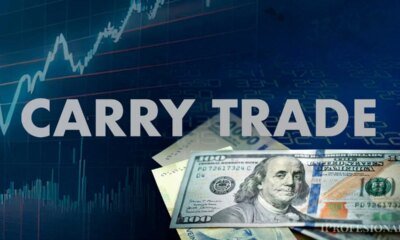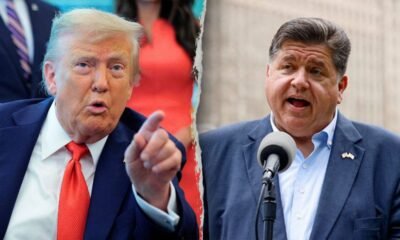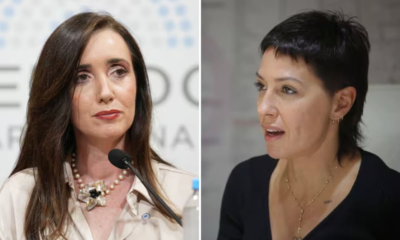INTERNACIONAL
Comer subpoenas the Clintons, Trump’s DOJ in House Oversight’s Epstein probe
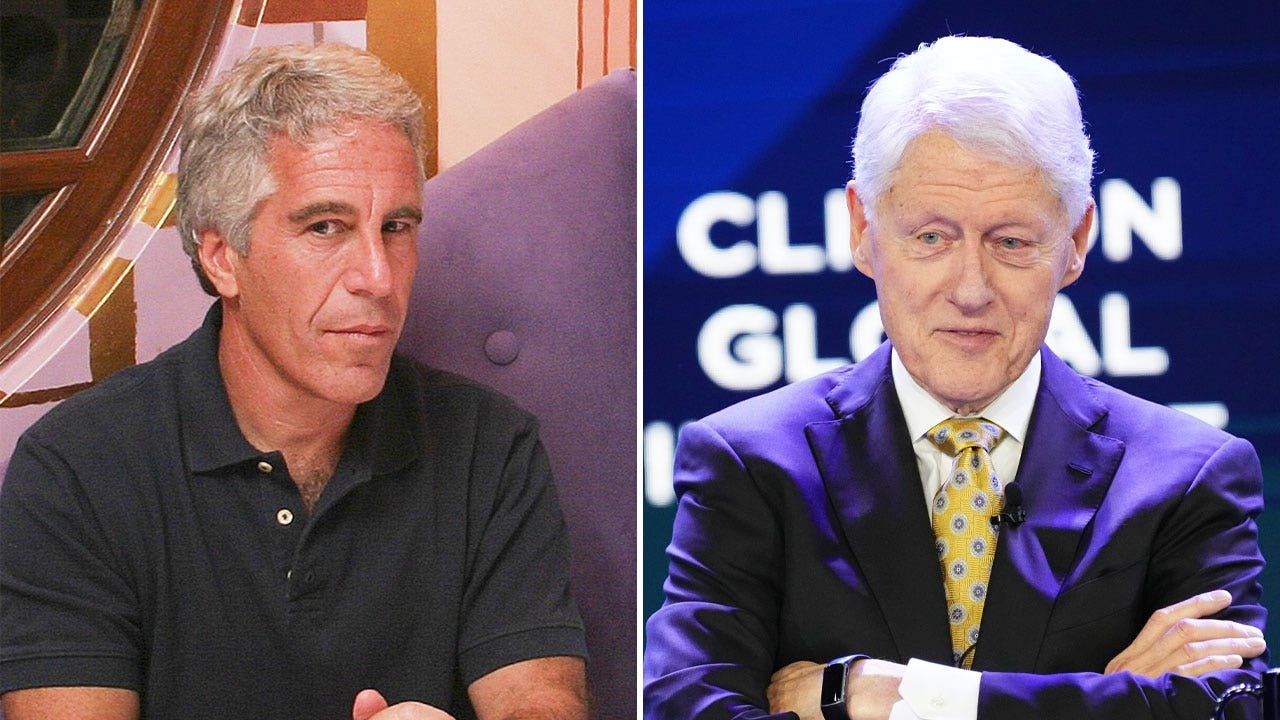
NEWYou can now listen to Fox News articles!
FIRST ON FOX: The House Oversight Committee has subpoenaed former President Bill Clinton and former Secretary of State Hillary Clinton for testimony regarding Jeffrey Epstein, Fox News Digital has learned.
Committee Chair James Comer, R-Ky., sent a flurry of subpoenas related to Epstein on Tuesday morning, with the Clintons being just two of the people that House investigators are looking to hear from.
Comer also sent a subpoena to the Department of Justice (DOJ) for records related to Epstein’s case.
Others who are being compelled to appear are former FBI directors James Comey and Robert Mueller, as well as ex-Attorneys General Loretta Lynch, Eric Holder, William Barr, Jeff Sessions, and Alberto Gonzales.
LONGTIME BIDEN AIDE SAYS HE STOOD TO EARN UP TO $8M HAD PRESIDENT WON RE-ELECTION
Former President Bill Clinton and others are being subpoenaed in relation to the House Oversight Committee’s Epstein probe. (Getty Images)
A House Oversight Committee subcommittee panel voted to subpoena each of the individuals, as well as the DOJ, in two respective votes last month during an unrelated hearing.
It comes after Comer followed through on an earlier full committee vote to subpoena Ghislaine Maxwell, a close former Epstein associate who was sentenced to 20 years in prison «for her role in a scheme to sexually exploit and abuse multiple minor girls with Jeffrey Epstein over the course of a decade,» according to a press release by the Southern District of New York.
Comer has agreed to delay Maxwell’s deposition until after the Supreme Court heard her petition to overturn the conviction, however.
COMER DISMISSES BIDEN DOCTOR’S BID FOR PAUSE IN COVER-UP PROBE: ‘THROWING OUT EVERY EXCUSE’
The committee is giving the DOJ until Aug. 19 to turn in records related to Epstein’s case, Fox News Digital has learned
Hillary Clinton is being compelled to appear on Oct. 9, and Bill Clinton on Oct. 14, according to letters sent to both of them, respectively.
Barr and Sessions, who both served as attorneys general during Trump’s first term, were subpoenaed to appear Aug. 18 and Aug. 28, respectively.
Obama-era attorneys general Lynch and Holder are being compelled to appear on Sept. 19 and Sept. 30.
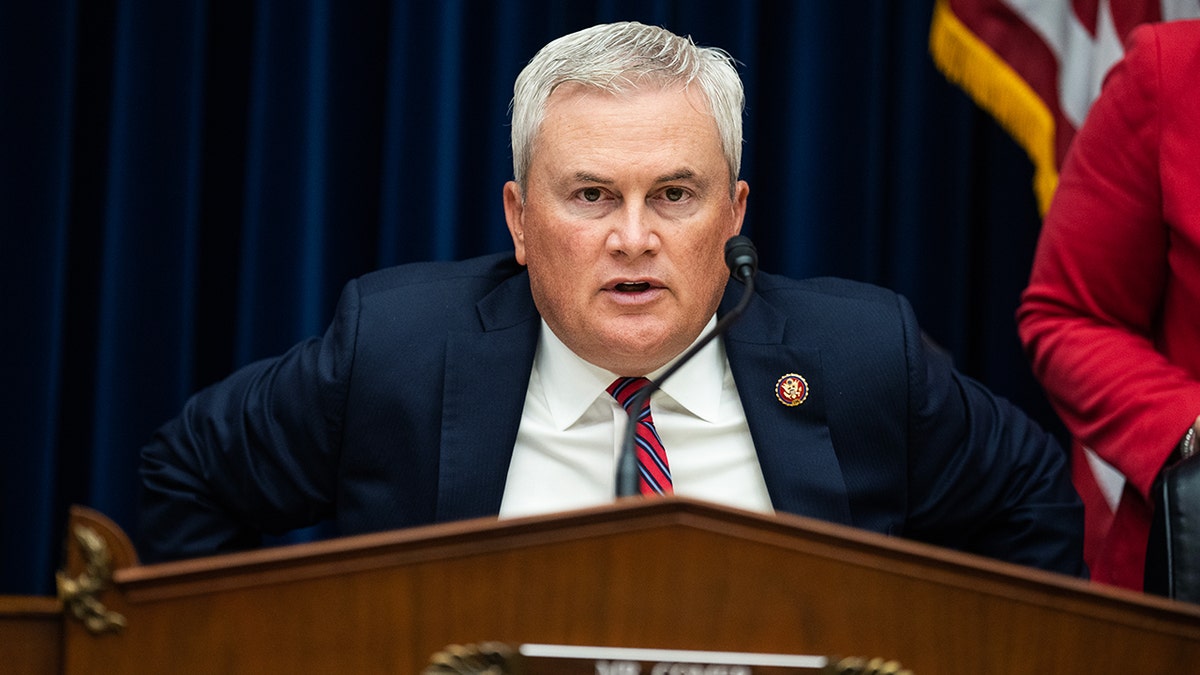
Chair James Comer, R-Ky., of the House Oversight and Accountability Committee, issued the subpoenas on Tuesday. (Tom Williams/CQ-Roll Call, Inc via Getty Images)
Former Biden attorney general Garland’s deposition date is scheduled for Oct. 2, Mueller is scheduled for Sept. 2, and Comey is scheduled for Oct. 7.
Gonzales, who served as attorney general under former President George W. Bush, is being compelled to appear Aug. 26.
It’s not immediately clear how much information the subpoenas will yield, or if those subpoenaed will cooperate with the House Oversight Committee at all.
The late pedophile Epstein committed suicide in 2019 while awaiting prosecution on federal sex trafficking charges. The GOP base has fractured over the current administration’s handling of the case, however.
FAR-LEFT FIREBRAND SAYS SHE ‘NEVER HAD A CONCERN’ ABOUT BIDEN’S MENTAL STATE AS HOUSE PROBE HEATS UP
The divisions stem from a DOJ memo released in July that said, «This systematic review revealed no incriminating ‘client list.’ There was also no credible evidence found that Epstein blackmailed prominent individuals as part of his actions. We did not uncover evidence that could predicate an investigation against uncharged third parties.»
Far-right figures like Steve Bannon and Laura Loomer have accused the DOJ of mishandling something that’s long been seen as a priority for Trump’s base.
President Donald Trump has stood by Attorney General Pam Bondi, however, and has directed her to release any «credible» evidence related to Epstein in a bid to quell the infighting.

Attorney General Pam Bondi’s Department of Justice is being subpoenaed as well. (Tom Williams/CQ-Roll Call, Inc via Getty Images)
Bondi then had deputy attorney general Todd Blanche travel down to the Florida prison where Maxwell was kept until recently for a sit-down with her and her lawyer.
The DOJ has also pushed for the release of grand jury testimony related to Epstein and Maxwell’s cases.
CLICK HERE TO GET THE FOX NEWS APP
Democrats, meanwhile, have seized on the discord with their own newfound calls for transparency related to Epstein’s case – prompting accusations of hypocrisy from the right.
«Democrats have now seized on this as if they ever wanted transparency when it comes to Jeffrey Epstein, which is an asinine suggestion for any Democrat to make. The Democrats had control of this building, the White House, for four years, and they didn’t do a dang thing when it came to transparency in regards to Jeffrey Epstein and his heinous crimes,» White House Press Secretary Karoline Leavitt said last month.
«It was this president who directed the Department of Justice and the attorney general to do an exhaustive review of all files related to Jeffrey Epstein, which they did.»
house of representatives politics,bill clinton,hillary clinton,justice department,jeffrey epstein,politics
INTERNACIONAL
DHS juggles ‘mass deportation’ push with Helene relief, adds $124M after Biden backlash
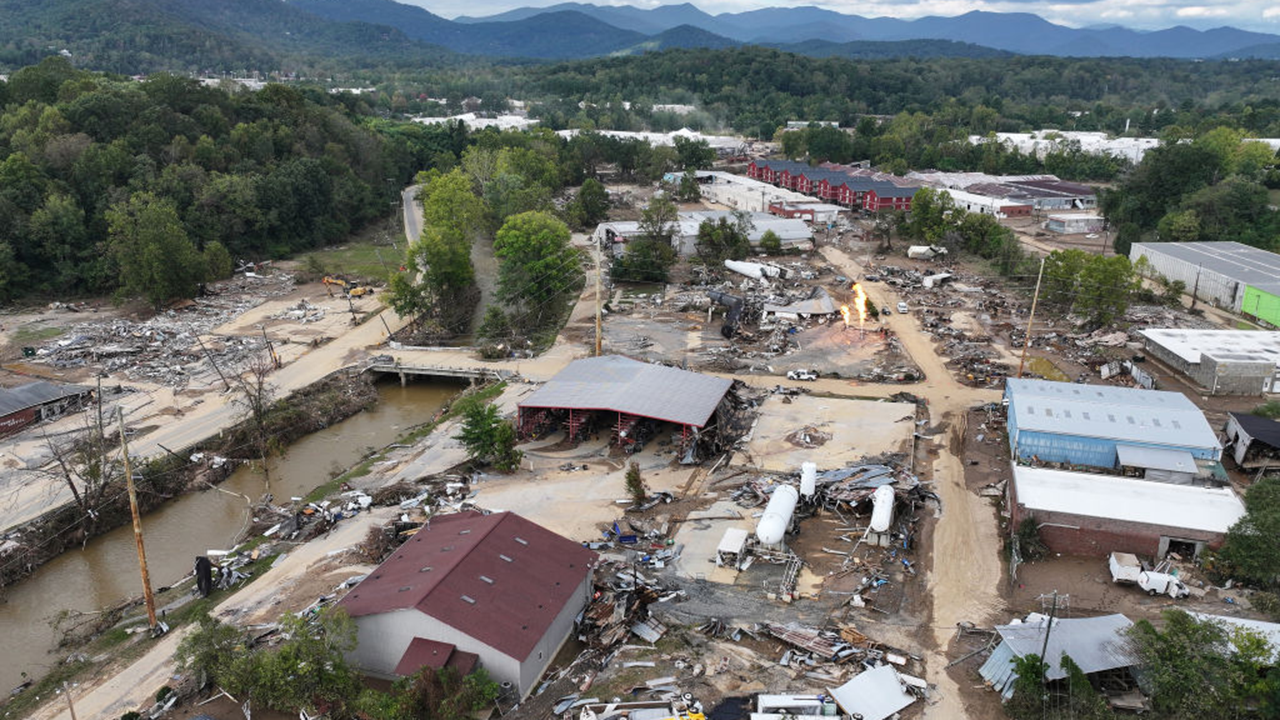
NEWYou can now listen to Fox News articles!
The Department of Homeland Security released a second round of August funding for Hurricane Helene relief this week, even as the agency directs increased resources toward President Donald Trump’s «mass deportation» framework.
Secretary Kristi Noem’s latest $28 million allocation formally offered Sunday brings the month’s total to $124 million in funds from FEMA, which sits within DHS, for the deadly Category 4 hurricane that made landfall in Florida’s Big Bend and devastated the Smokies.
The funding will go to road repairs and critical infrastructure restoration – which is especially needed in North Carolina and Tennessee.
In that regard, a crucial stretch of Interstate 40 washed into the Pigeon River near that state line — cutting off the lone major trucking route over the mountains, as large vehicles are prohibited on Tail of the Dragon and other regional crossings.
SENATOR PETER WELCH: I’M A DEMOCRAT AND WE NEED TO FIX FEMA WITH LOCAL CONTROL
Devastation from Hurricane Helene in North Carolina, 2024. (Mario Tama/Getty Images)
FEMA funds have also been allocated to debris removal and «life and property» concerns.
«North Carolina families suffering from this unimaginable tragedy were cruelly ignored by the Biden administration,» Noem deputy Tricia McLaughlin said in a statement.
«Under President Trump and Secretary Noem’s leadership, FEMA is moving faster than ever before to get Americans the relief they need. This move to continue supporting North Carolina victims of Hurricane Helene is a testament to that fact.»
Trump lambasted former President Joe Biden’s initial response to Helene, claiming he «didn’t like reports that [he was] getting about the federal government.»
Trump alleged that more conservative areas – of which the western half of North Carolina has many, with the notable exception of Asheville – were wrongly being underserved by the feds.
Biden, however, rejected the claim, cutting off a reporter who asked him about it at the time.
NOEM SAYS CRITICISM OF FEDERAL RESPONSE TO TEXAS FLOODING IS ‘ALL POLITICS’: ‘DISSERVICE TO OUR COUNTRY’
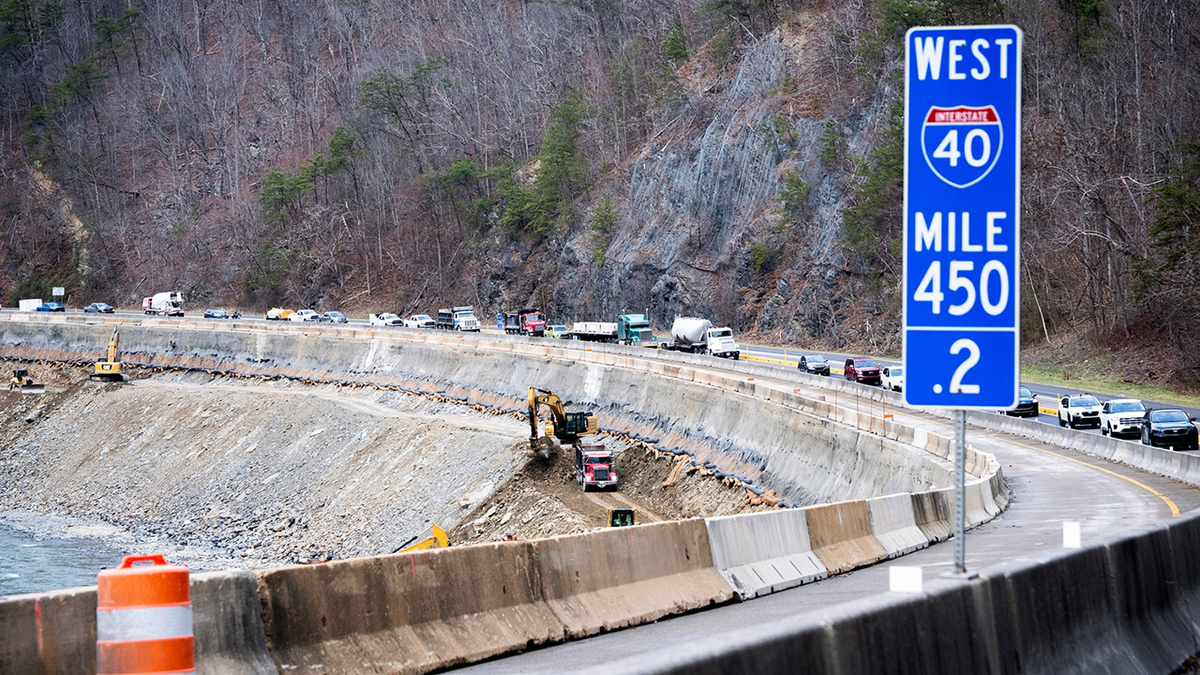
A stretch of eastbound Interstate 40 in Cocke County, Tenn., near the North Carolina line, collapsed into the raging Pigeon River during Hurricane Helene, stymieing regional commerce. (Brianna Paciorka/Knoxville News-Sentinel/IMAGN)
«He’s lying, and the governor told him he was lying. I’ve spoken to the governor. I spent time with him and he told me [Trump is] lying. I don’t know why he does this,» said Biden, who had recently spoken with then-North Carolina Democratic Gov. Roy Cooper and Georgia Republican Gov. Brian Kemp around that time.
Republicans also lambasted then-DHS Secretary Alejandro Mayorkas when he claimed FEMA was running out of funds amid allegations the agency spent large sums on the migrant crisis, according to the New York Post.
However, Rep. Chuck Edwards, R-N.C., who represents a swath of storm-ravaged communities, said in a «fact-check» on his congressional website that FEMA did not divert any disaster response to the border or to foreign aid.
CLICK HERE TO GET THE FOX NEWS APP
«FEMA’s non-disaster-related presence at the border has always been of major concern to me, even before Hurricane Helene, and I will continue to condemn their deployment of personnel to the southern border, but we must separate the two issues,» Edwards said, while adding that the agency informed him they had enough money for recovery needs.
«Secretary Mayorkas’ statement indicating otherwise was an irresponsible attempt to politicize a tragedy for personal gain,» Edwards said.
Trump later told a campaign rally in Pennsylvania that Biden’s response to Helene was worse than what followed Hurricane Katrina in 2005.
Then-President George W. Bush was memorably lambasted for praising then-FEMA Director Michael Brown’s response – remarking «Brownie, you’re doing a heckuva job,» Bush said while surveying recovery efforts in Mobile.
diversity,drones,donald trump,tennessee,north carolina,homeland security
INTERNACIONAL
María Corina Machado agradeció a Milei haber declarado grupo terrorista al Cartel de los Soles
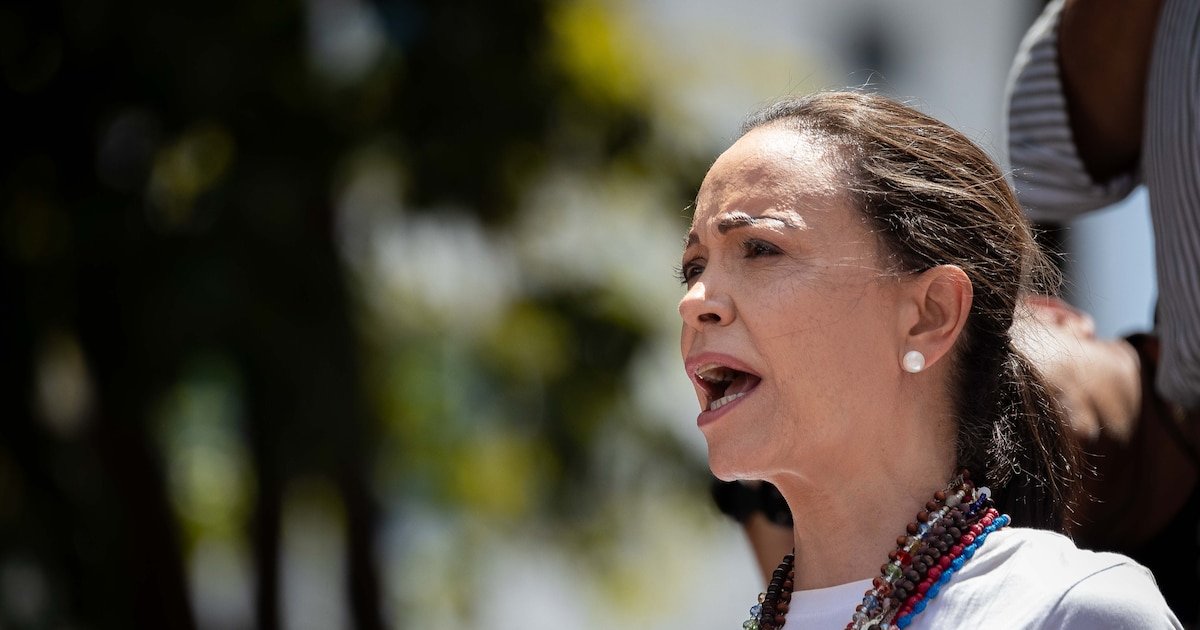
María Corina Machado, líder política opositora al régimen dictatorial de Nicolás Maduro, agradeció este martes al presidente argentino Javier Milei el decreto que declaró como grupo terrorista al Cartel de los Soles.
Machado, perseguida por la dictadura de Maduro e imposibilitada de presentarse a elecciones, remarcó el compromiso del jefe de estado argentino que se sumó de esta forma a lo actuado por Ecuador y por Paraguay en las últimas semanas. «Querido Presidente Milei, en nombre de los venezolanos le agradezco su firme y decidido apoyo a la causa justa por la Libertad y la democracia de Venezuela, así como el respaldo y cariño del pueblo de la Argentina“, indica el texto publicado en X.
“Nuestro pueblo ha enfrentado con inmensa valentía y dignidad a un régimen criminal narco-terrorista que ha provocado intencionalmente miseria, violencia y la huida de millones de ciudadanos”, subrayó Machado.
La líder política de la oposición venezolana enfatizó además la voluntad de cambio definitivo que atraviesa el pueblo de su país, sumido en una severa crisis humama, social, política y económica. “Hoy tenemos una sociedad unida, organizada y decidida a conquistar su Libertad para traer a nuestros hijos de vuelta a casa”, dijo.
“Sabemos que también contamos con el apoyo de los pueblos hermanos de las Américas y con los genuinos líderes democráticos del mundo. ¡Venezuela será libre!“, concluyó.
El Gobierno argentino declaró organización terrorista al “Cártel de los Soles”, que comandan Maduro y Diosdado Cabello. La administración Milei dispuso esta mañana incluir a ese grupo narcocriminal en el Registro Público de Personas y Entidades vinculadas a Actos de Terrorismo y su Financiamiento (RePET).
La declaración de “organización terrorista”, según informó el Gobierno, responde a los compromisos internacionales asumidos por la República Argentina en materia de prevención y combate al terrorismo. Y se enmarca en la normativa vigente y busca fortalecer la protección del sistema financiero nacional.
La resolución fue adoptada tras una coordinación entre el Ministerio de Relaciones Exteriores, que encabeza Gerardo Werthein y el Ministerio de Seguridad, de Patricia Bullrich.
“Declaramos al Cártel de los Soles como organización terrorista y narcocriminal. Maduro y su séquito son narcoterroristas. Ni en la Argentina ni en ningún lugar del mundo van a poder llevar a cabo sus actividades criminales. Para este Gobierno, el que las hace, las paga. Acá o donde sea”, afirmó Bullrich, en un mensaje publicado en su cuenta de X.
El 14 de agosto, días después de que el Tesoro de los Estados Unidos dispusiera una recompensa de 50 millones de dólares para quien aportara información que lleve a la captura de Maduro, el gobierno de Daniel Noboa designó al Cartel de los Soles como organización terrorista.

La disposición se formalizó mediante un decreto ejecutivo y forma parte del estado de “conflicto armado interno” que el mandatario mantiene desde inicios de 2024.
Con la inclusión del Cartel de los Soles en la lista de organizaciones terroristas de Ecuador, el gobierno de Noboa amplía su ofensiva contra las redes criminales que operan en el país.
La estrategia, respaldada por operativos conjuntos de Policía y Fuerzas Armadas, ha implicado detenciones masivas y la ocupación de territorios considerados bajo control de grupos armados. Las autoridades no han precisado el alcance de la presencia del Cartel de los Soles en Ecuador, pero el CNI deberá presentar un informe con sus hallazgos y coordinar acciones con agencias extranjeras.
Por su parte, días después, fue el gobierno de Santiago Peña en Paraguay el que dispuso una medida similar. El decreto presidencial fue firmado el pasado 22 de agosto. En él, Peña señala: “Desígnase a la organización delictiva transnacional denominada ‘Cartel de los Soles’ como organización terrorista internacional. Refréndese el Ministerio de Relaciones Exteriores“.
INTERNACIONAL
La hiperlujosa villa de verano de la reina Máxima y el rey Guillermo sobre el Egeo pone incómodos a los holandeses








